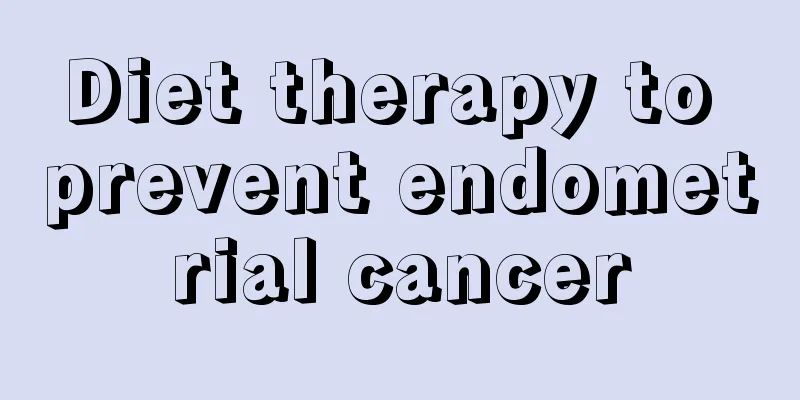Dietary considerations for preventing colon cancer

|
In recent years, the incidence of colorectal cancer in my country has increased significantly. With the improvement of economic level, the diet of Chinese residents has become increasingly refined. The bad eating habits of long-term consumption of high-calorie, high-fat, high-protein, low-fiber foods are closely related to the occurrence of colorectal cancer. At the same time, Chinese people generally have weak knowledge about diet and do not pay attention to the close relationship between diet and cancer. Studies have shown that a diet high in saturated fatty acids can increase the concentration of bile acid in the colorectum and change the composition of intestinal flora. Bile acid can generate carcinogens through bacterial action. Dietary fiber includes cellulose, pectin, lignin, etc., which can absorb water, increase the amount of stool, shorten the time for stool to pass through the colorectum, and reduce the time carcinogens come into contact with the intestinal mucosa. Insufficient dietary fiber intake is also one of the causes of colon cancer. Therefore, a scientific diet structure and reasonable eating habits can prevent the occurrence of colorectal cancer to a large extent. How to develop scientific eating habits from the perspective of cancer prevention? First of all, a balanced diet is an important way to avoid the lack of various nutrients. Picky eating habits are not desirable, especially in the fast-paced modern society. We should not blindly pursue convenience and simplify our diet, but consciously take in various nutritional elements. Calcium and vitamin D have potential anti-cancer effects Calcium is closely related to the metabolism of vitamin D. Studies have further found that the incidence of colorectal cancer in people who consume sufficient amounts of vitamin D in their diet is only half that of people who consume a small amount of vitamin D; and the incidence of colorectal cancer in people who consume more than 1,200 mg of calcium per day is only one-fourth of that in people who consume less than 625 mg of calcium per day. Therefore, scientists have concluded that calcium intake is negatively correlated with the risk of colorectal cancer, and vitamin D has potential anti-cancer effects. Experts suggest that in order to effectively prevent colon cancer, a daily calcium intake of 1,800 mg for men and 1,500 mg for women is an appropriate dose. In addition, all adults should consume 200 international units (5 micrograms/day) of vitamin D. Reduce fat intake and promote a low-fat diet Epidemiological studies have found that the diet in areas with a high incidence of colorectal cancer is characterized by high fat, while the diet in areas with a low incidence is low in fat. In-depth studies have found that a high-fat diet can cause an increase in bile acid metabolites (deoxycholic acid, lithocholic acid), cholesterol metabolites (steroids and ketones), and bacterial glucuronidase activity in the stool. These are either carcinogens or promoters, and may lead to colorectal cancer. Therefore, excessive fat diet is directly or indirectly related to colorectal cancer. Encourage the consumption of fiber-rich foods such as fresh vegetables and fruits Those who don't like to eat vegetables, fruits and whole grains should pay attention to adjusting their habits. Studies have found that a lack of fiber in food can reduce the amount of stool and slow down intestinal peristalsis, so the concentration of carcinogens in the intestine increases, and the time for carcinogens to interact with the intestinal wall mucosa is prolonged, which makes colorectal cancer more likely to occur. Eat more konjac, soybeans and their products, fresh fruits, algae, etc.; eat more vegetables rich in dietary fiber, such as celery, leeks, cabbage, radish and other green leafy vegetables. Vegetables rich in dietary fiber can stimulate intestinal peristalsis, increase the number of bowel movements, and remove carcinogenic and toxic substances from the feces. More than 35 grams of dietary fiber should be supplemented every day. Carotene, vitamin B2, vitamin C, and vitamin E all have the effect of reducing the incidence of colorectal cancer. If these vitamins are lacking in the diet for a long time, it may promote the possibility of colorectal cancer. Eat more fruits to supplement carotene and vitamin C; eat walnuts, peanuts, dairy products, seafood, etc. in moderation to supplement vitamin E; you can eat some foods that have anti-tumor effects and enhance immunity, and pay attention to the intake of foods rich in trace elements such as malt, fish, and mushrooms. People who often eat pickled foods have an increased chance of developing colorectal cancer, which may be related to the carcinogens produced during the pickling process of food. Try to eat less pickled foods. Regular consumption of onion and garlic foods can reduce the incidence of colorectal cancer. Its anti-cancer mechanism may be related to reducing the damage of carcinogens to the intestinal mucosa. In summary, the occurrence of colorectal cancer is closely related to bad eating habits. Although the occurrence of colorectal cancer is not entirely determined by eating habits, bad eating habits can greatly increase people's chances of developing these cancers. Health education for Chinese people, especially dietary health education, is very important. Scientific dietary structure and habits should be able to prevent the occurrence of colorectal cancer to a large extent. |
<<: What are the dietary nutrients for colon cancer
>>: What are the diets for colorectal cancer turning into liver cancer
Recommend
Side effects and classification of Fritillaria cirrhosa
Speaking of Fritillaria cirrhosa, many people pro...
5 Practical Life Skills of Vinegar
Washing your hair with vinegar makes it smoother ...
How to treat chalazion effectively?
Many people may not know much about chalazion. In...
How long will stomach cramps last?
If people do not pay attention to hygiene and hea...
Can I eat lean meat in the late stage of liver cancer?
Can I eat lean meat in the late stage of liver ca...
What are the main causes of gastric cancer?
Gastric cancer is a common malignant tumor in Chi...
Will flat warts disappear on their own? How to treat them
Generally speaking, when flat warts appear, there...
How to wash Nizi's coat
The general idea is that many people like a kind ...
What are the liver cancer examination indicators? Mainly do these examinations
Patients with liver cancer need to undergo some e...
Three major laryngeal cancer symptoms that need attention
The incidence of laryngeal cancer symptoms is rel...
Pay attention to the nine truths about prostate cancer
Prostate cancer is the most common malignant tumo...
What are the consequences of intravenous potassium chloride injection?
Everyone is familiar with intravenous drip, which...
The efficacy and function of Guizhi foot bath
In fact, whether you need to soak your feet in wi...
Can patients be cured in the early stages of breast cancer?
The cure rate of early breast tumors mainly depen...
What is the treatment for advanced liver cancer
Liver cancer is a cancer with a high incidence ra...









